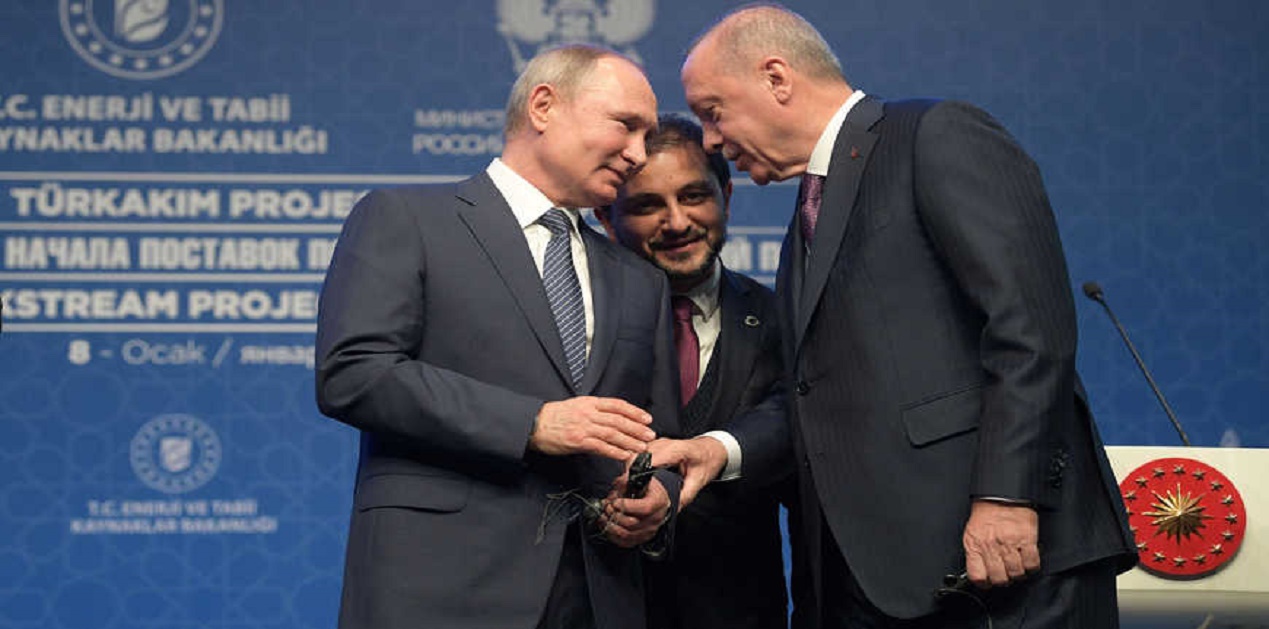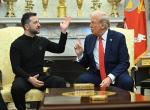For over a decade the biggest problem and misfortune of the Libyans has been the competition among the rival powers. This included the regional and non-regional interventionists who continue to support their favourite militias or quasi governments which further complicated the problems on the ground and peace and progress and the Libyan dream became a casualty. Libya was the third country after Tunisia and Egypt that bore the brunt of public discontent spurted through the Arab Spring of 2010 whose target was to remove the long-time dictators. While the other two were comparatively less chastised Libya suffered the most. Gaddafi was probably the most hated of all. Gaddafi was dislodged by popular discontent and a NATO invasion beguiled under UNSC Resolution 1973 and through an engineered revolution supported by external powers. Libya fell prey to lack of any planning thereafter.
No one thought about it as if the removal of Gaddafi was an end in itself. Scores of militias sprung up and engaged in internecine warfare. 2012 Elections were the last hope that was belied because of the way they were conducted and the premises of institution and democracy building it sought to superimpose. 2014 elections led to greater polarisation. The so called masters of the time proved thoroughly incompetent. Governance structures were decimated by the intrinsic weaknesses. Free for all followed. The model of election divested of political parties was devised to keep the Muslim Brotherhood and Islamists from hijacking. Egypt was a bad enough example. Subsequent elections were not honoured by the losers.
Consequently Libya could boast of three Prime Ministers at one time, two Parliaments and at least two Heads of States with East and West coming to loggerheads. In this melee of competing interests of all hue and colour gave way to extremist and terrorist groups from Al Qaeda to ISIS yet again providing a leeway and excuse to outside powers to bomb the Libyan cities. Ironically those who facilitated their entrenchment in Libya in the first place to remove Gaddafi wanted to prove their redemption by eradicating them.
Russia had good relations with Libya all along and considered Gaddafi a good friend in the Arab world. It was also a huge market for their arms and ammunitions by default as US-Libya conflict and sanctions continued to grow. Russia also tried to play a mediatory role during the revolution but that was not to be as the military intervention was considered a given by the regional countries and the western powers led by France. Russia lost the leverage and its major sphere of influence in the Middle East until it revived it in Syria. Besides it felt completely let down and outsmarted by the westerners even in the UN. Moreover, its embassy in Tripoli was attacked and burnt in 2013 when the Russian guards killed two members of irate crowd of protesters and the Russians had to evacuate. Russia also has some prisoners in Libya and wants them released. Its economic interests and opportunities in the reconstruction of Libya remain alive. Tatneft has decided to restart its operations after the force majeure in the oil and gas sector. It also provides strategic access having over 2000kms of beautiful Libyan Mediterranean coast line. Reportedly Russia was interested in having a base there. But Russia started doubting the intentions of Haftar when he refused to sign the ceasefire deal in Moscow and left. Russia, however, worked with Germany and other countries to organise the Berlin Process and rapprochement under the aegis of UN that is still faltering due to prevailing and deepening mistrust in sharing of power.
Libya has been richly endowed both by hydro carbons and shale reserves. After its successful intervention and retrieval and enlargement of its influence in Syria and with other Gulf countries it was logical that Russia played a more productive role in trying to bring about some negotiations and peace in this war ridden country. But it supported the Tobruk based Libyan House of Representatives and government with PM Abdulla al Thani which for all practical purposes is led by the strong man General Khalifa Haftar who is also supported by France, UAE, Egypt , Saudi Arabia , Jordan and Israel. Even though Haftar was said to be a CIA asset USA did not err on his side while others felt that Libya needed a strongman to stabilize and whose overt objective was to eliminate Islamic militias and radical extremists who were being harboured by Tripoli government. On the other hand Tripoli based and UN backed Government of National Accord (GNA) led by PM Fayez Al Sarraj, which is an interim Government with a Presidency Council under the terms of the Libyan Political Agreement, signed on 17 December 2015. This is supported by the General National Congress (GNC) and various powerful militia groups in western Libya as well as by UK, USA, Italy, and Qatar and most recently by Turkey.
Rivalry is existential and violent between the two parliaments and their backers. Despite UN sanctions and verbosity of non-productive statements the two sides have been funded and supplied with latest weaponry and firepower and results are obvious. Greater instability and chaos followed. Eventually in April 2019, General Haftar decided to capture Tripoli by force and laid seize forgetting the basic lesson of Stalingrad that longer the seize, greater the resolve of the people to fight back. Fighting and shelling of Tripoli continued for over a year and just before the impending fall of the capital, Turkey- the new middle power in the Middle East and a NATO ally militarily intervened and turned the tables.
Libya had been a part of the Ottoman Empire and has been ruled by the Romans who called it Tripolitania and Cyrenaica in the east by Greeks. British, French and Italians had their own colonial footprint and linkages in different regions of Libya. Turkey in modern context also has huge economic interests for decades and like India also many of its construction and infrastructure companies lost a great deal during the 2010 revolution. However, Turkey took a pragmatic and proactive stance in the post Gaddafi era especially with the Tripoli government. Despite its NATO membership, President Erdogan, disenchanted by the US and EU, decided to flex his military muscles and rather successfully in the Middle East be it during the blockade of Qatar by Saudi Arabia, UAE, Egypt and Bahrain or in Syria and finally a decisive action in Libya to serve its strategic interests in the maritime domain in the Mediterranean and for hydrocarbons.
Under the agreements signed with Sarraj government Turkey provided military advisers, drones and latest equipment and aerial cover changing the fortunes of the embattled Tripoli government and despite the calls for ceasefire and warnings by the Russians pressed on to liberate Gaddafi’s birthplace Sirte and Al Jufra air base where Russian planes and equipment was said to be located as per US satellite imagery and a UN leaked report. Wagner group with its 1200 strong force is said to be withdrawing too. It was reported that UAE and other Gulf states, given their own economic challenges due to Covid-19 and lower oil prices and intra–Gulf conflicts, might not be able to indefinitely support Haftar’s costly ambitions. Erdogan spoke to Trump and said they had agreed on some issues with regard to Libya which appeared to have given Turkey the requisite comfort level since their onward march onto hitherto Haftar controlled territories could serve the US interests as Russian assets receded.
After talking to Haftar and Agila Saleh Speaker of House of Representatives in Cairo last week, President Sisi, of Egypt and a benefactor of Haftar, called for an urgent ceasefire and start of political talks. Turkish spokesman advised them to desist from supporting the General as his “time was up”. Qatar also said that Haftar only talks of political solution when he is losing. However, this effort was welcomed by most countries including US and Russia. Meanwhile , the Tripoli government sent a delegation to Moscow led by Deputy PM Ahmed Mattieq to persuade the Russians to stop further support to Haftar but sticking point are the Russian prisoners whom the Libyan government wants to try for treason.
Currently, while there are attempts to restart the 5+5 talks in line with the Berlin process Russia and Turkey are hoping to come to terms for retaining their sphere of influence in East and West of Libya respectively. Even though Russia and Turkey have had historical competition, Putin and Erdogan have been able to work together to diffuse difficult situations in Syria and Libya and may find a modus vivendi yet again. France and Italy have found it difficult to be on the same side and have undercut efforts for any solution unless predicated on their own geo-political interests. Russian and US officials also discussed their respective “Middle East Agenda”.
US has been an unwilling protagonist in the Libyan conundrum but cannot absolve itself of the destruction heaped on Libyans. Regime change agendas have a limited utility but wide ranging adverse ramifications. Europeans, despite serious misgivings by the Greeks against Turkey given their historic baggage and gas pipeline projects in East Mediterranean, may not be that unhappy as long as their oil and gas supplies are ensured and illegal migration and extremism are curbed by the Libyan government/s of the day. They have as such started to launch the Operation IRINI to enforce the UN arms embargo in the Mediterranean and have been categorical about it to all the presently interventionist powers. Egypt, a close neighbour, will have difficulty in carrying on with its support to Haftar if finances dry up from the Gulf. Would it lead to a traditional division of Libya and eventual confederation of sorts is any body’s guess. But hopefully that will be avoided at all cost even if Haftar’s grand ambitions become the casualty in this bargain. At least the New Libyan dream will live on.
(The paper is the author’s individual scholastic articulation. The author certifies that the article/paper is original in content, unpublished and it has not been submitted for publication/web upload elsewhere, and that the facts and figures quoted are duly referenced, as needed, and are believed to be correct). (The paper does not necessarily represent the organisational stance... More >>
Image Source: https://9c998969b63acdb676d1-37595348221e1b716e1a6cfee3ed7891.ssl.cf1.rackcdn.com/almpics/2020/01-1/RTS2XN4I.jpg/RTS2XN4I-870.jpg











Post new comment